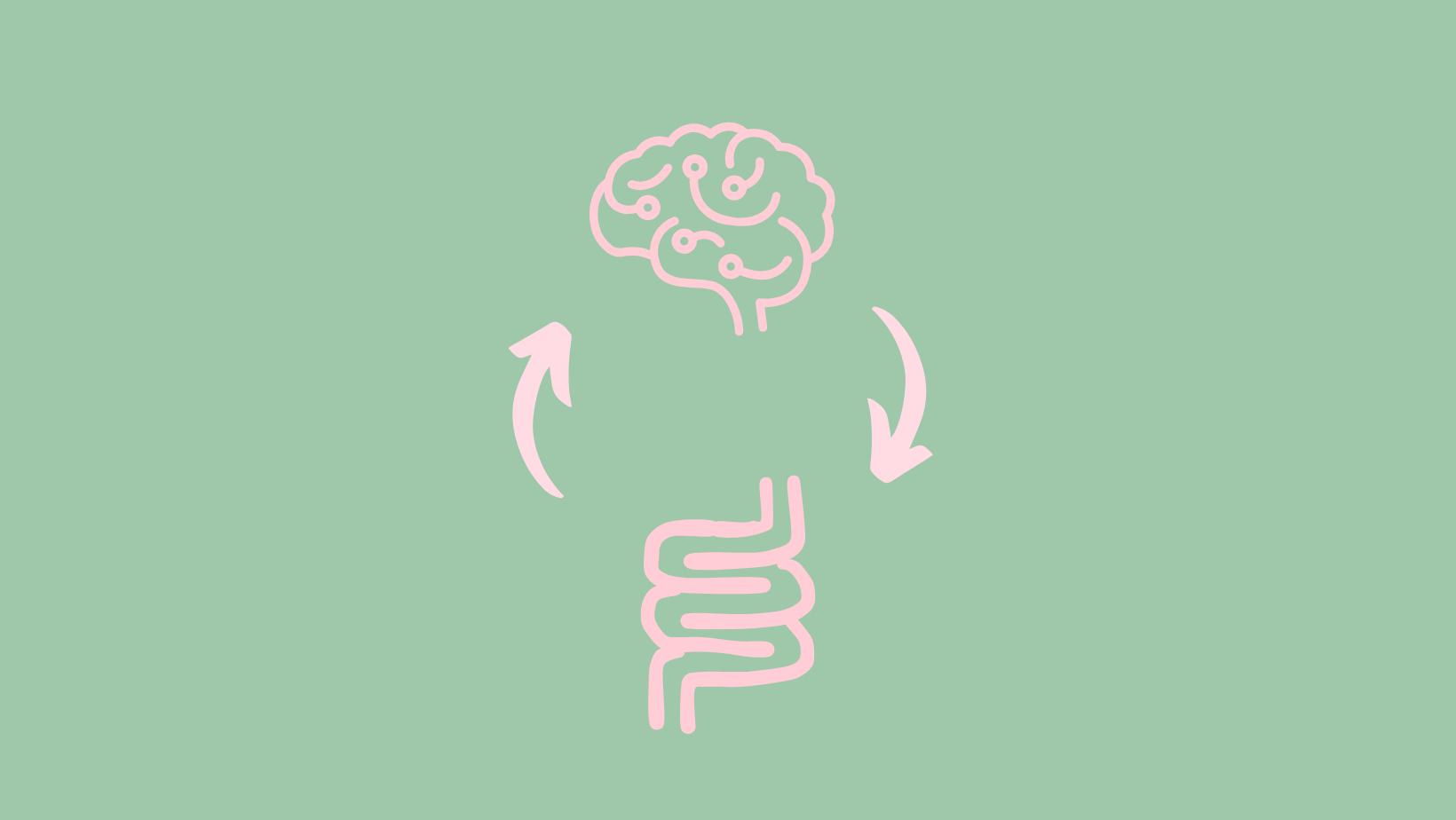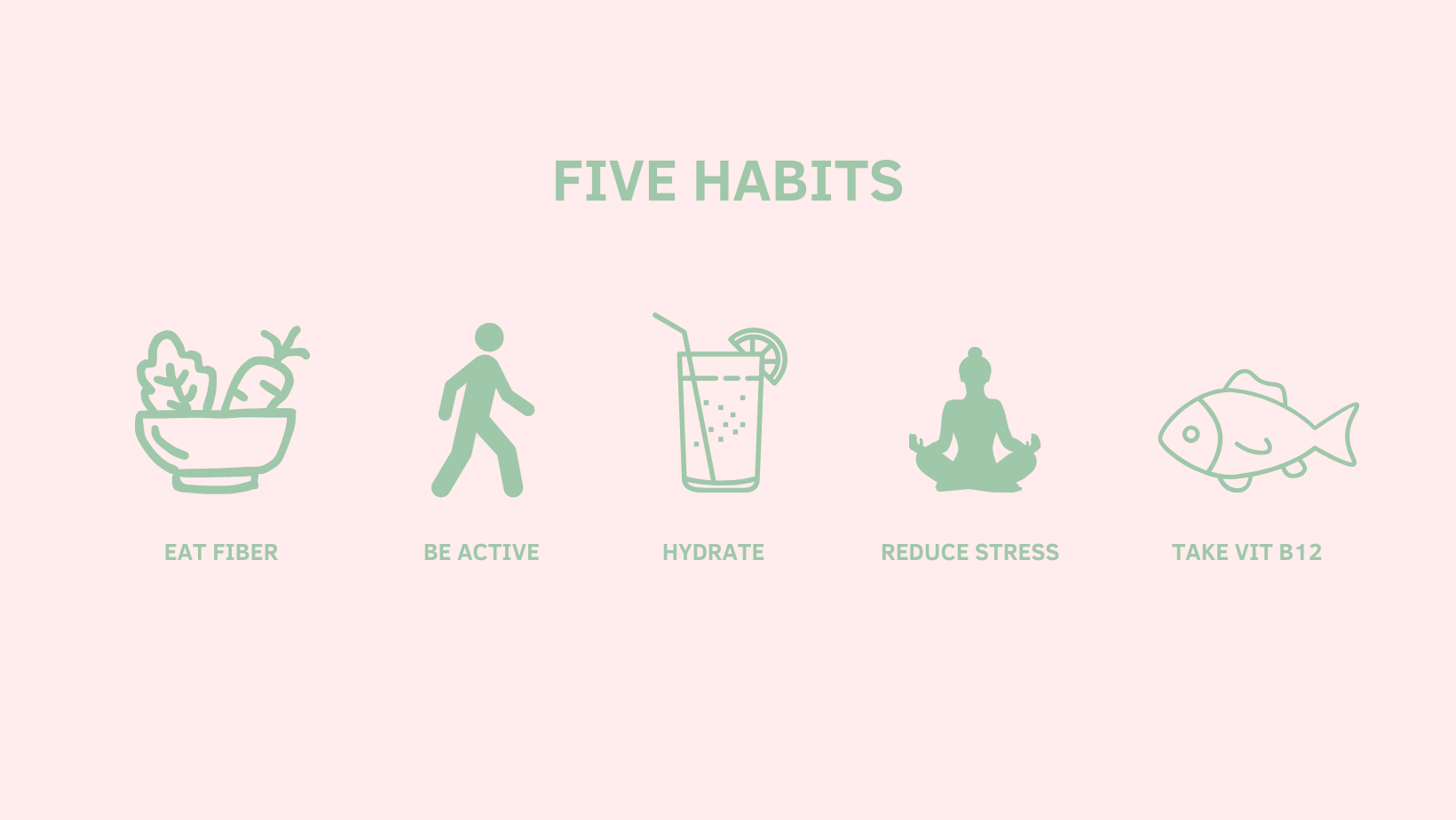Gut Health: A Key For Mental Wellbeing

When was the last time you felt "butterflies in your stomach"? Or when did you experience a "gut-wrenching situation"? Do you tend to "forget to eat, when stressed"?
I don't know about you, but my gut is very sensitive to emotions, both positive and negative. And that's completely normal.
Your gut and your brain are in constant communication, called the "microbiota-gut-brain axis."(I wrote about the importance of a healthy microbiota here.)
Not only does the brain play an important role in how our gut functions, but gut bacteria can also interact with our central nervous system and help regulate our brain chemistry and systems related to stress, anxiety, and memory. In fact, the microorganisms in our gut produce neurotransmitters such as serotonin and dopamine in the brain.
For every message the brain sends to the gut, the gut sends nine to the brain, via the visceral nerves and the gut microbiota.
While dysbiosis (an imbalanced bacterial composition) has been linked to suboptimal mental health, numerous studies have found that populating the gut with beneficial bacteria (“probiotics” or “psychobiotics”) can create positive changes in the composition and diversity of the gut microbiome and corresponding improvements in brain and mental, and physical health.
As I had written here, women are more stressed more than men. And because the brain and thus mental health is so tightly connected to the gut, I was curious:
Can the gut microbiome be a reason that more women are diagnosed with mental health disorders?
The Answer:
Yes.
There seems to be a difference in the gut-brain axis between the sexes assigned at birth.
While studies are still in their infancy, and more research is needed, they suggest a link between the microbiome, major depressive disorders, and other mental health issues.
In other (very simplified) words, this means that it is extra crucial for women to take care of their gut microbiome and their mental health.
5 Habits For Better (Gut and Mental) Health

Increase Your Fiber Intake
If you generally feel good every day, a food-first approach already puts you on a great track to having a healthy gut.
You're likely to lack the recommended daily amount of fiber (30g/d). Studies show that increasing your fiber intake will cause measurable positive changes in the composition of your gut microbiome. Try to eat a variety of plants (fruits, veggies, nuts, seeds, and whole grains), aiming to consume 30 different varieties per week.
An example of counting plants: If you drink a smoothie with blueberries, cocoa powder, almond butter, and spinach in the morning, you’ve already eaten four plants- and that’s just for breakfast.
Dietary fiber improves the composition, diversity and richness of the microbiome. Different types of fiber are fermented in the gut by different bacteria. The more fiber you eat, the better the good bacteria thrive, and the more diverse your microbiome is, the healthier your gut is.
And within a month, you’ll start to have a dramatic shift in your microbiome.
Take Enough Vitamin B12
Nutrient deficiencies affect the health of the microbiome. Vitamin B12 (found in salmon, tuna, beef, and yogurt) can be linked to bacterial diversity and abundance, as this study shows.
Some people (vegans and vegetarians) don't consume enough vitamin B12 to meet their needs, while others can't absorb enough (gastrointestinal conditions like celiac disease) no matter how much they eat. If you're on a restricted diet, ask your doctor at your next appointment if you need to be tested.
Stay Hydrated
Dehydration leads to inflammation. In addition, people who drink a lot of water (>1 l water per day) have a different bacterial composition than those who drink little. Most notably, they have less of a type of bacteria associated with gastrointestinal infections. In the end, it’s clear: what’s good for your gut is good for you.
Be Active
Most of you know that exercise boosts your mood, but it’s also directly linked to your gut health. Research shows that regular endurance exercises such as walking, running, and cycling can increase the amount and diversity of beneficial bacteria.
Manage Stress
As mentioned in the intro, our hunger changes when we are stressed. There’s evidence that stress changes the community of belly bugs, research suggests. Now’s the time to develop the stress-management strategies that really speak to you, whether it’s your favorite type of breathing (diaphragmatic or box, for example), reading, going out for a run, or spending time in nature.
The Take-Away
Understanding and supporting this intricate interplay through lifestyle modifications, dietary interventions, and stress management can help you optimize your physical and mental health and well-being throughout your lifespan.
And as I always like to say:
A small change you can maintain over time is better than any short-term cleanse or diet.
